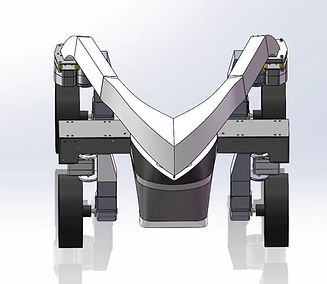
MODUFARM:
Rearrange, Then Exceed

About The Company
\
Modern agriculture relies heavily on inefficient, single-purpose machinery that inflates costs, damages ecosystems, and limits adaptability. Farmers face high procurement costs and must often rent equipment, causing delays during peak seasons.
The ModuFarmBot solves these challenges by offering a modular, all-in-one robotic solution. Equipped with a universal connect system for tool swaps, it seamlessly adapts to tasks like plowing, sowing, and harvesting. Its compact size allows operations in both large fields and confined greenhouses, while cluster-controlled automation ensures precision, scalability, and sustainability.
Electrical powered and eco-friendly, the ModuFarmBot minimizes soil compaction, reduces waste, and optimizes input usage, preserving ecosystems and boosting efficiency. With global demand for automation growing, its cost-effective, versatile design lowers procurement expenses, making it a revolutionary choice for farmers of all scales, even for personal garden planters. By enhancing productivity and sustainability, the ModuFarmBot is set to redefine agriculture and contribute to global food security.
The Problem
Current agricultural tools face significant challenges: existing automated equipment is functionally limited and expensive, with high costs stemming from the need for specialized machines for every production stage. Large machinery often directly damages ecosystems and operates with inefficiency, contributing to deforestation and over-fertilization. Furthermore, most automated devices rely on gasoline or diesel, exacerbating environmental harm through emissions.
Our Solution
Our innovation addresses these challenges through precision engineering and automation. By integrating multiple farming tasks into a single modular device, the ModuFarmBot reduces the need for separate machines. Electrically powered and equipped with advanced algorithms, it eliminates reliance on diesel, minimizes soil compaction, and applies resources with accuracy, reducing waste and environmental harm. Furthermore, its scalability ensures that farmers, whether managing small plots or large farms, can meet their operational needs efficiently and sustainably. This approach supports not only individual farmers but also global food security by promoting productivity and sustainability on a broader scale.
